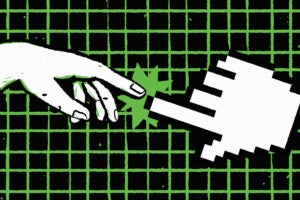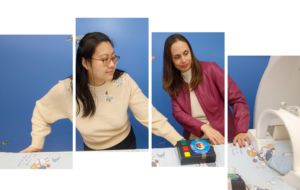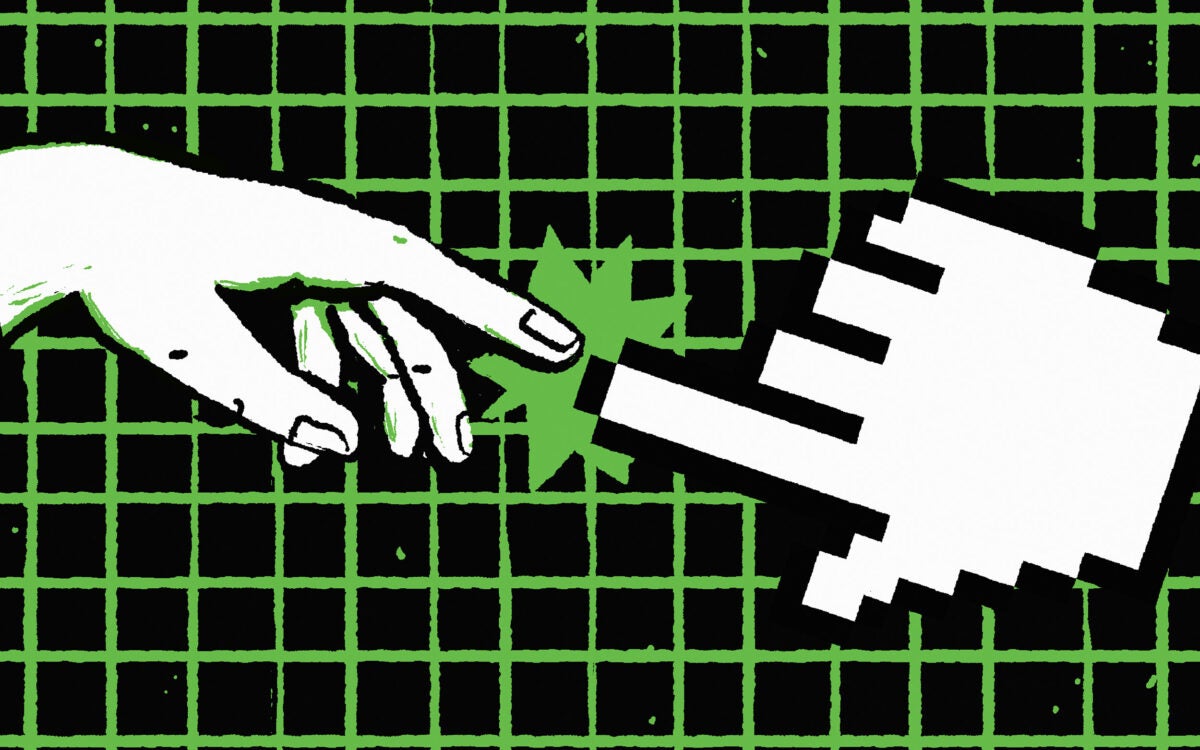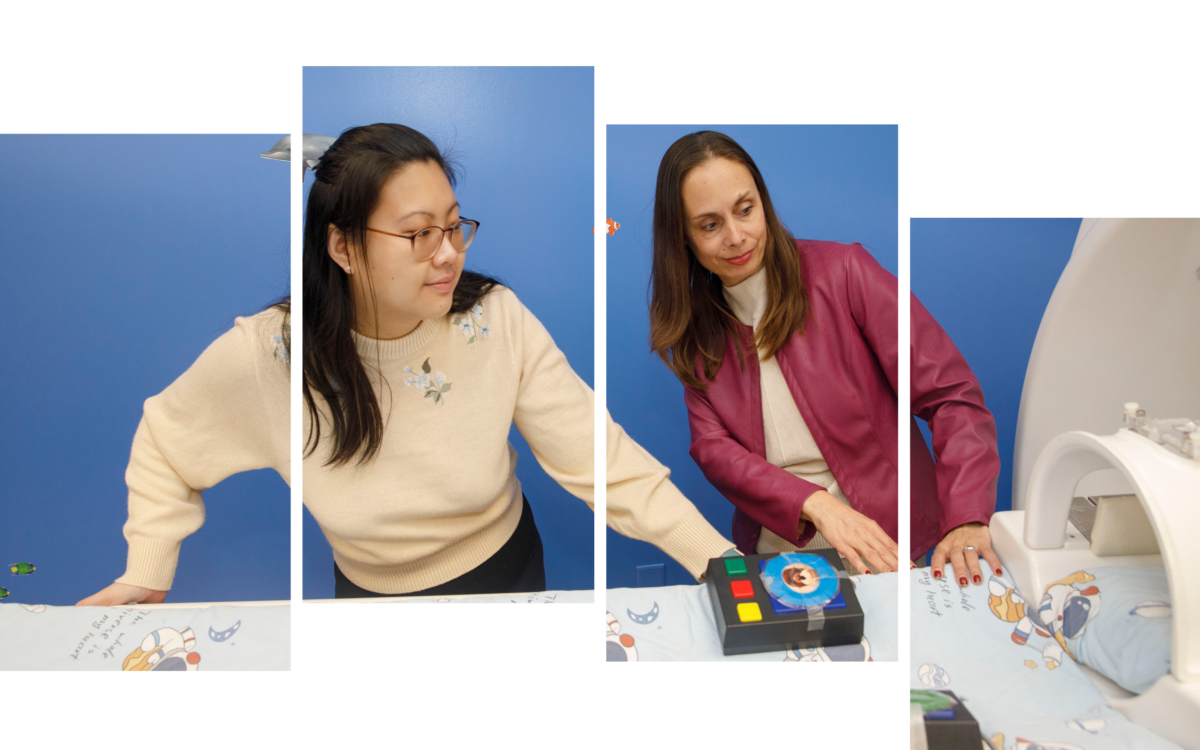Alien abduction claims examined
Signs of trauma found
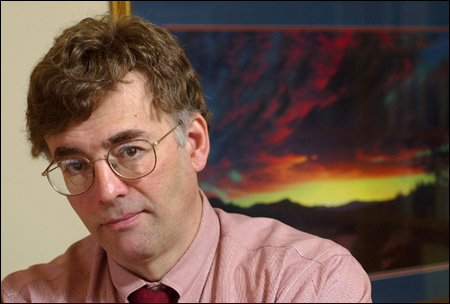
Mark H. says he was abducted by aliens. He clearly remembers awakening one night, unable to move anything but his eyes. He saw flashing lights, heard buzzing sounds, experienced feelings of levitation, and felt electric tingling sensations. Most terrifying were the nonhuman figures he saw by his bed.
Mark believes they were aliens.
Later, he underwent hypnosis to try to recall exactly what had happened to him. Under hypnosis, Mark remembered being whisked through an open window to a large spaceship. He was very frightened when aliens took him into some kind of medical examining room. There he had sex with one of them.
Afterward, the aliens brought him back to Earth and returned him to his bed.
Mark describes the experience as terrifying. But did it really happen?
Some researchers at Harvard University devised an experiment to determine if memories of an abduction by space aliens would provoke the same physiological reactions that occur when other people, such as combat veterans and those who survive deadly car accidents, recall their traumatic experiences.
Richard McNally, a professor of psychology, and his colleagues recruited six women and four men who claimed they had been spirited away by extraterrestrials, some of them more than once. Under hypnosis, seven of the 10 reported having had their sperm or eggs extracted for breeding purposes, or experiencing direct sexual contact with the space aliens.
Each of these people was interviewed by either McNally or Susan Clancy, also a professor of psychology. Each also wrote a script that told the story of his or her abduction. The research team then made audiotapes, spoken in a neutral voice, from the scripts. The abductees listened to these tapes in the laboratory of Scott Orr at the Veteran’s Affairs Medical Center in Manchester, N.H. As the tapes played, the researchers recorded their emotional responses using such measures as heart rate and sweat on the palms of their hands.
The same procedure was done with eight people haunted by traumatic experiences unrelated to abduction by aliens.
When the two sets of measurements were compared, the results were striking. Abductees showed surprisingly strong physiological reactions to the tapes of their alien encounters. Their reactions were as great or greater than those of individuals who cannot shake memories of combat, sexual abuse, and other punishing events.
McNally announced these findings on Feb. 16 at a meeting of the American Association for the Advancement of Science in Denver. “The results underscore the power of emotional belief,” he noted. “People who sincerely believe they have been abducted by aliens show patterns of emotional and physiological response to these ‘memories’ that are strikingly similar to those of people who have been genuinely traumatized by combat or similar events.”
Dreaming with their eyes wide open
Neither McNally nor the other Harvard researchers ever considered the possibility that people in the study, or anybody else, was ever abducted by space aliens. But, if not, what produced their lasting vivid memories?
The researchers tie such abduction stories to a phenomenon they call “dreaming with your eyes wide open.” The episodes occur just as people awaken from a dream. Dreams include full-body paralysis, a nice adaptation that prevents people from jumping out of bed to escape their demons, or otherwise making moves in a dream that could injure them in reality. The sleeper awakens from a dream before the paralysis goes away, and experiences hallucinations like seeing flashing lights and some kinds of living things lurking around the bed.
Sleep paralysis is common and no more indicative of mental illness than a hiccup, the researchers point out. But when the hallucination and paralysis occur together, many people find the combination frightening, and they attempt to find a meaning in it.
Some individuals consult psychiatrists or psychologists who hypnotize them to recover presumably repressed memories that lie behind the strange events. During such sessions, a person may recover false memories of being transported up into spacecraft where they were subjected to medical and sexual experiments.
Psychological interviews and tests conducted on the abductees reveal little evidence of mental illness, but they enjoy a rich fantasy life. When they listen to music or watch movies they often imagine they are somewhere else or part of the movie plot. The typical abductee, notes McNally, “has a longstanding interest in ‘New Age’ practices and beliefs such as reincarnation, astral projection, mental telepathy, alternative healing practices, energy therapies, and astrology.”
He and his colleagues conclude, “a combination of pre-existing New Age beliefs, episodes of sleep paralysis, accompanied by hallucinations and hypnotic memory recovery may foster beliefs and memories that one has been abducted by space aliens.”
Ghost, hags, and incubi
Such combinations give rise to a variety of interpretations across cultures and throughout history, McNally points out. Not everyone who has been scared by this experience imagines they have been abducted by aliens.
A hallucination upon awakening from a dream might be interpreted as a visit from a ghost or Satan. In Newfoundland, people have encounters with the “Old Hag,” a witch who gets on your bed with you. Hundreds of years ago in Europe, people feared the incubus, an evil spirit that lies on people while they sleep, or the succubus, a demon who assumes a female form and has sex with men in their sleep.
Abductees react emotionally like people who have real memories of combat, abuse, and near-death encounters, but most of them are glad they had contact with extraterrestrials. Some say they feel pleased to have been chosen to take part in hybrid breeding programs. Most of them, says McNally, “ultimately interpret their experience as spiritually transforming.”

